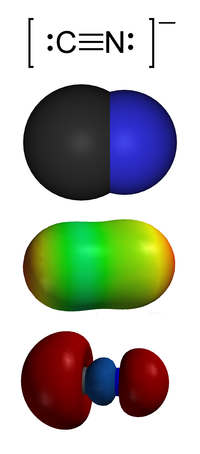
Photo from wikipedia
Alkaline hydrogen peroxide (AHP) pretreatment is a promising process for enhancing enzymatic digestibility of lignocellulosic biomass in biorefineries. In the present work, the effects of organic bases (NH 4 OH… Click to show full abstract
Alkaline hydrogen peroxide (AHP) pretreatment is a promising process for enhancing enzymatic digestibility of lignocellulosic biomass in biorefineries. In the present work, the effects of organic bases (NH 4 OH and tri-ethylamine) and co-solvents (ethanol, isopropanol, tert -butyl alcohol, water) on AHP pretreatment efficiency of rice straw were studied and compared to the typical aqueous reaction with NaOH. It was found that the glucose recovery from enzymatic hydrolysis of the biomass pretreated by AHP at 35 °C for 24 h using NH 4 OH in aqueous/ tert -butyl alcohol (73.6%) was higher than that achieved using ethanol and isopropanol (31.6–48.6%) and water (71.2%) under the same experimental conditions. Increasing H 2 O 2 concentration from 1 to 10% v / v in the aqueous/ tert -butyl alcohol with NH 4 OH led to enhancing sugar yield to from 349 to 623 mg/g pretreated rice straw, equivalent to the highest glucose recovery of 83.0%. Formation of highly porous structures in pretreated rice straw by removals of hemicelluloses and lignin was revealed by Fourier transform infrared spectroscopy and scanning electron microscopy while the increased crystallinity index was shown by X-ray diffraction. This modified low-temperature AHP pretreatment using organic solvent system is advantageous on recyclability potential of the reagents and potent for further implementation in lignocellulosic biorefineries.
Journal Title: BioEnergy Research
Year Published: 2020
Link to full text (if available)
Share on Social Media: Sign Up to like & get
recommendations!